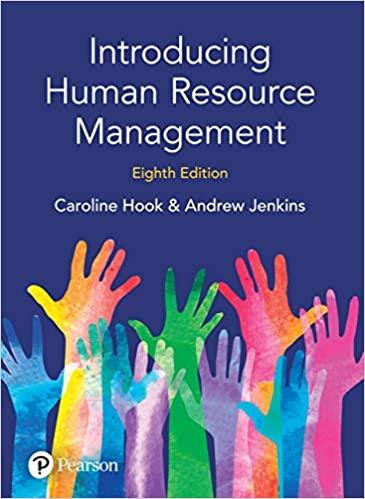Every year between May and September, all 54 employees of Basecamp, a Chicago-based web applications company, work
Question:
Every year between May and September, all 54 employees of Basecamp, a Chicago-based web applications company, work a short week: just four days — a total of 32 hours. They work a conventional five-day week the rest of the year.
“That’s plenty of time to get great work done. This is all we expect and all we want from people,” says Jason Fried, co-founder. “Working 50, 60, 70-plus [hours] is unnecessary. In fact, if you have to work 50, 60, 70-plus hours a week, there’s a management problem.”
The company’s summer workload must fit reduced hours, Mr Fried insists, otherwise the benefits of a shorter week — to recover from work, enjoy time with family and pursue outside interests — would be undone.
His philosophy chimes with new research that finds it is not just long hours that are harmful to employees’
physical and mental health. It is also the intensity of work — tight deadlines and a relentless pace.
Moreover, it suggests that intense work harms career prospects. That is because excessive hours and intensity are counterproductive, reducing the quality of the work.
The forthcoming study, called “Implications of work effort and discretion for employee wellbeing and career-related outcomes: an integrative assessment”, to be published in the Industrial and Labor Relations Review, concludes that the level of intensity we apply to the work we do (defined as the level of effort supplied per unit of working time) is generally “a stronger predictor of unfavourable outcomes than overtime work”.
Compared with overtime, work intensity predicts much greater reductions in wellbeing and career-related outcomes Hans Frankort, senior lecturer in strategy, Cass Business School.
The researchers, Argyro Avgoustaki, assistant professor of management.........
Questions 1. To what extent do you agree with Jason Fried’s assertion that ‘if you have to work 50, 60, 70-plus hours a week, there’s a management problem?’
2. To what extent do you think that workers should be given an opportunity to choose the order, method and pace of work as well as their hours and breaks? Would this, in your view, go some way towards helping to alleviate workplace stress?
3. In your view, should workers have the right to disconnect, as advocated in France, so that they have the right not to answer emails or phone calls at the end of the working day or at weekends?
4. Do you tend to agree with the premise of the article that long hours are detrimental to productivity with mistakes being made by workers and potential burnout? Or do you agree with Mark Efron who thinks that this is really just some individuals trying to force their views on others because they are unwilling or unable to perform at those levels and that they want to pull down those who can and will?
5. As people live longer, do you feel that, at different stages of your life, you may want to choose to work with different levels of intensity and different hours?
Step by Step Answer:

Introducing Human Resource Management
ISBN: 9781292230344
8th Edition
Authors: Caroline Hook, Andrew Jenkins





